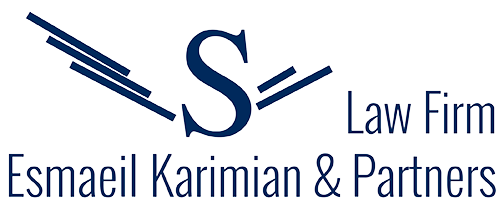Intellectual Property Rights
1. Intellectual Property Rights
Intellectual property rights, also known as intangible property rights, express the rights and duties of individuals who own intellectual and non-financial property, which is a property acquired through intellectual activity and effort and, unlike other properties, is not available physically and materially. Poetry, novel, invention, painting, film, music, and the like are all intellectual properties. Knowledge is non-exclusive in nature and is used by everyone at the same time, and in this respect it is very different from other properties that are of a physical and material nature. In the current era of information explosion, science, art and technology have gained a lot of prestige and have a very high economic value, and due to the growing need of intellectual rights holders, the need for this new field is increasing. One of the most widely used examples of intellectual property rights is the development of computer software, and mobile applications.
ESK Internationla Law Firm
Our team is composed of highly skilled and versatile lawyers who combine practical experience and academic knowledge of their field. Most of our practitioners have worked in different professional environments, often outside their home jurisdiction.
2. Divisions of Intellectual Property Rights in Iran
In our country, intellectual property rights fall into two general categories:
1. Literary and artistic property rights (Copyright), which, according to the “Law on the Protection of the Rights of Authors, Writers and Artists, 1969”, such works are under protection as soon as they are created. According to this law, anyone who claims that a work belongs to him, even if he has presented it in his own name for the first time, must provide evidence. For this reason, the need to register a work in the individual’s name is always emphasized. Literary and artistic property rights, also known as copyrights, protect intellectual properties that has a written or artistic status. Books, regardless of their content, music, films, photographs, paintings, sculptures, and architecture are subject to copyright law, but the duration of protection for each of these works varies.
2. Industrial property rights that deal with industry and technology are subject to the “Law on Patents, Industrial Designs and Trademarks of Iran”, which was approved by the Parliament in 2007. This law states three main characteristics for an invention. In other words, and invention must have three characteristics to get protection:
♦ Being innovative
♦ Being creative
♦ Having industrial application.
The law of patents is fundamentally different from the law of protection of copyrights. Unlike literary and artistic works in which the registration of a work has a positive function, in the case of patents, registration not only proves the rights of the inventor, but any claims to the contrary Aborted afterwards.
Intellectual property rights generally recognize two categories of rights for their holders:
1. Intellectual rights, which means the attribution of a work to a person and is in fact the registrant of a person’s intellectual property in his own name.
2. Material rights, which include the economic use and exploitation of the work and intellectual property in the form of sale, assignment of copyright or publication and production of the work and conclusion of license agreements. Material rights are the exclusive property of the owner and only he has the right to use or assign them; However, one cannot sell or transfer intellectual rights. Also, material rights have a time period and are not permanent. For example, the material rights of an invention is twenty years, after which the law will no longer protect that invention.

3. Legal Action at the Time of Infringement of IP Rights
If intellectual property owners intend to sue or take action against the abusers of their works, they should first of all pay attention to the scenarios specified in the law, which determine the cases of infringement of intellectual property rights. These can be expressed in several categories:
1. Violation of the rights of authors and unauthorized reproduction and translation of works of art and literature.
2. Violation of the rights of computer software creators.
3. Patent infringement: Under Iranian law, patents are protected when they are registered. In the event of an infringement of a patent, civil and criminal actions can be taken to secure the rights of the patent owner.
4. Violation of industrial designs: an owner of industrial designs have the right to license his designs to others by franchise/license contracts. In such circumstances, the owner is obliged to supervise his designs, and if he encounters an infringement, the law will protect him.
5. Trademark Infringement: Profiteers may use a registered trademark in a way that misleads the consumer due to the good name and reputation of a particular brand or product, or they may present a fake product with a well-known brand in the market. The law protects the rights of the trademark owner in cases where the use of the trademark is misleading.
6. Violation of trade secrets: One of the most important factors for success in trade competition is to protect trade secrets and avoid disclosing them. Trade secrets have independent economic value, and because they are not publicly available, business owners are more concerned about protecting them. The law defines trade secrets as a model and tool that startups and businesses can use to outperform other competitors.
Intellectual property claims can be heard in the courts of Tehran, and specific branches of the general court investigate claims and crimes in this regard. Of course, filing a lawsuit in other branches of the general court will not lead to a disqualification order, but judges usually, by issuing a refusal order, notify the plaintiff to file and pursue his complaint in the designated branches.

4. Does Proving Infringement of IP Rights Lead to Compensation?
In general, damages resulting from infringement of intellectual property rights either lead to the loss of property or to the loss of benefit. This issue is mentioned in the mentioned Laws only in the case of infringement of patents and trademarks. The assessment of damages in violation of industrial intellectual property rights under Iranian law has ambiguities and complexities because the exact criteria for it is not specified in the law and granting compensation depends to a large extent on the criteria of evaluation.
This is one of the major weaknesses of our law because it has a direct effect on the production of new intellectual works, and when the creator or inventor does not have a clear vision of the status of damages in the event of any infringement, there will be no incentive to produce new works. However, in developed societies, due to the importance they place on technical and scientific advances, it is also important to pay attention to IP rights in business. Therefore, they are more supportive while the difficulty of the law blocks the way for further infringements. The need to enact more comprehensive and specific laws to protect intellectual property rights and to address how to compensate for the violation of these rights will pave the way for activists in this field and ultimately clarify the path of production of science and inventions.
ESK Law Firm and IP Rights Services
Our team provides a complete range of Intellectual Property (IP) services. We apply our technical skills in IP to provide the best strategic advice to companies operating in industries as diverse as the pharmaceutical, manufacturing, publishing, food, media, financial services, airline, life sciences, chemistry, electronics, computer engineering, mining and engineering sectors.
Our team is able to register a range of IP rights and additional support is provided through our well-established network of professional contacts, such as trade mark and patent attorneys, who can be consulted should the need arise.
ESK attorneys focus on leveraging their clients’ intellectual property to help them achieve success in the marketplace. Our IP lawyers provide counsel on the most efficacious methods of establishing and developing IP holdings and protecting IP rights so clients can realize the most value from those assets.
From patents to trademarks and copyrights to licensing and technology transfers to IP audits and IP asset due diligence, our attorneys offer clients portfolio management and strategic advice on obtaining and protecting valuable intellectual property.
The firm’s IP lawyers represent clients ranging from large multinational corporations to individual inventors, authors and owners of creative works. Our IP team includes highly trained attorneys with multiple technical degrees, former corporate patent and trademark counsel and professors of IP law.
A sampling of matters the ESK IP team handles includes pharmaceuticals, consumer products (particularly in the food and home and personal care categories), entertainment, media, franchising, distribution, trade secret matters and licensing projects. Our IP attorneys also assist clients in disputes regarding rights of privacy and publicity, antitrust and Internet and e-commerce issues.
